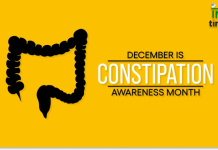
Constipation Awareness Month 2024 is dedicated to increasing understanding and awareness of constipation, an issue that affects millions worldwide. It serves as an essential reminder of the importance of digestive health and provides an opportunity to learn about prevention, management, and treatment options to improve quality of life.
Why Constipation Awareness Matters
Constipation is more than just a minor inconvenience; chronic cases can affect overall health, energy levels, and mood. This month-long observance encourages open discussions, education, and awareness around digestive health, helping to reduce stigma and motivate people to seek solutions for better well-being.
What is Constipation?
Constipation is generally defined as having fewer than three bowel movements per week, with symptoms including hard or lumpy stools, difficulty in passing stools, bloating, and abdominal discomfort. Persistent constipation, also known as chronic constipation, can significantly impact one’s daily life.
Key Causes of Constipation
- Low Fiber Intake: Diets low in fiber can lead to less frequent bowel movements.
- Dehydration: Inadequate water intake results in harder stools, making them difficult to pass.
- Sedentary Lifestyle: Lack of movement slows down digestion.
- Medications: Certain medicines, like antacids, pain relievers, and antidepressants, can contribute to constipation.
- Underlying Health Conditions: Diabetes, thyroid disorders, and Irritable Bowel Syndrome (IBS) can exacerbate constipation.
Common Symptoms of Constipation
- Infrequent bowel movements
- Hard, dry, or lumpy stools
- Straining or pain during bowel movements
- A feeling of incomplete evacuation
- Abdominal discomfort or bloating
Preventive Tips for Digestive Health
- Eat Fiber-Rich Foods: Include whole grains, fruits, vegetables, and legumes in your diet.
- Stay Hydrated: Drinking at least 8 glasses of water daily can keep stools softer.
- Exercise Regularly: Movement aids in digestion and encourages regular bowel movements.
- Avoid Processed Foods: These are low in fiber and can contribute to constipation.
- Establish a Routine: Going to the bathroom at the same time each day can help establish regularity.
Treatment Options for Constipation
- Dietary Adjustments: Increasing fiber intake is often the first line of defense.
- Hydration: Consistent water intake helps soften stools, making them easier to pass.
- Laxatives: Over-the-counter laxatives may be used but should be taken under medical guidance.
- Prescription Medications: For chronic cases, a doctor may recommend medication to stimulate the bowels.
- Lifestyle Modifications: Incorporating exercise and scheduling bathroom time can improve symptoms.
Constipation and Mental Health
Constipation can sometimes impact mental health, causing stress and anxiety due to discomfort and irregularity. Recognizing the mind-gut connection, Constipation Awareness Month 2024 also encourages strategies for managing stress, such as mindfulness and meditation, to support overall gut health.
When to Seek Medical Help
If constipation persists despite dietary and lifestyle changes, or if it’s accompanied by symptoms like severe pain, blood in stools, or unexplained weight loss, it’s essential to consult a healthcare provider. Chronic constipation can sometimes be a sign of other health issues that need medical attention.
The Importance of Community Support and Awareness
Constipation Awareness Month is also a time to support others facing similar issues. Healthcare organizations, workplaces, and online communities often host discussions, webinars, and awareness campaigns to educate and encourage people to prioritize digestive health.
Conclusion
Constipation Awareness Month 2024 shines a light on a common yet often overlooked condition. By understanding the causes, recognizing symptoms, and embracing preventive measures, individuals can take charge of their digestive health and improve their quality of life.
FAQs
- Can stress cause constipation?
- Yes, stress can interfere with digestion, leading to symptoms like constipation.
- What’s the recommended daily fiber intake?
- Around 25 grams for women and 38 grams for men, but individual needs may vary.
- Are there any natural remedies for constipation?
- Yes, options include drinking warm water, taking probiotics, and incorporating fibrous foods.
- Does constipation affect mental health?
- Chronic constipation can lead to stress and anxiety, affecting mental well-being.
- Is it safe to use laxatives regularly?
- Laxatives can be helpful but should not be overused. For long-term relief, consult a healthcare provider.



































